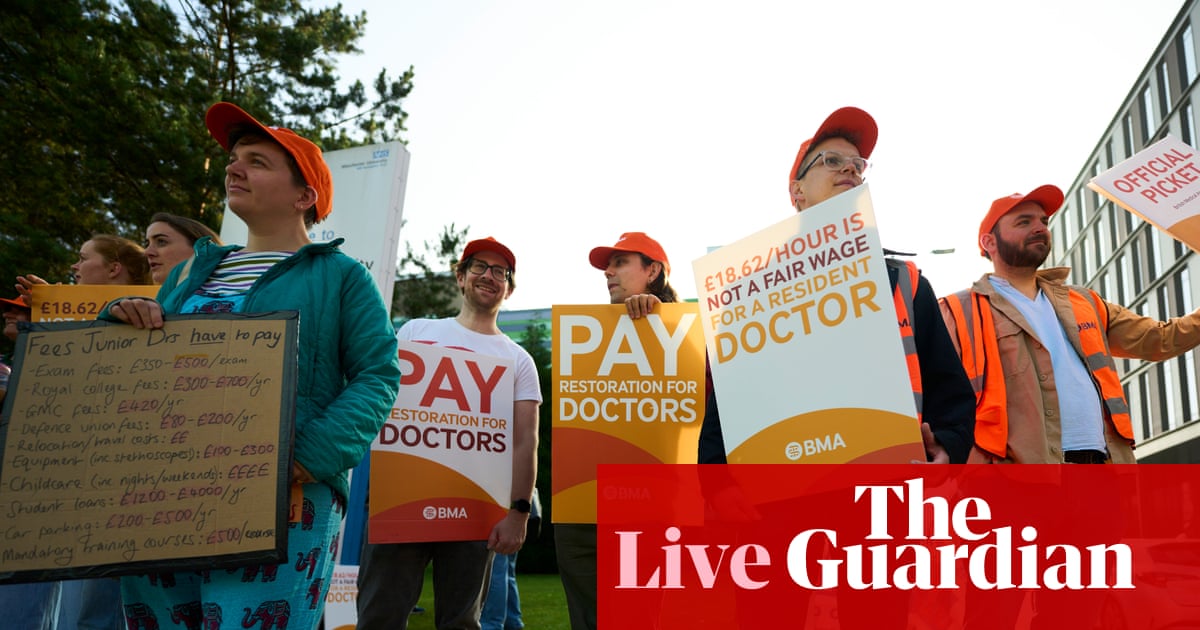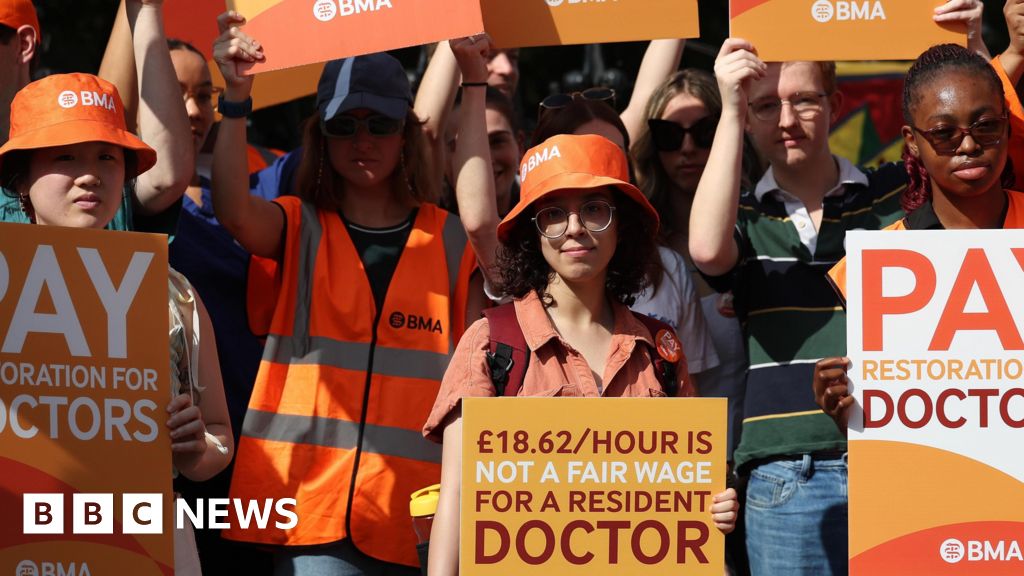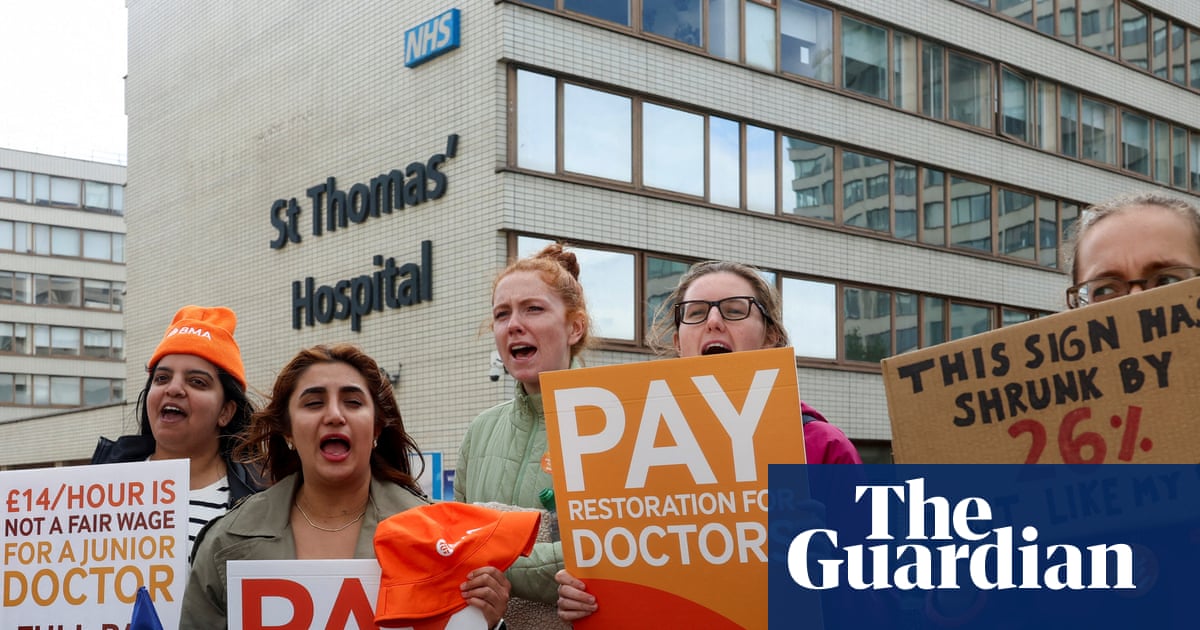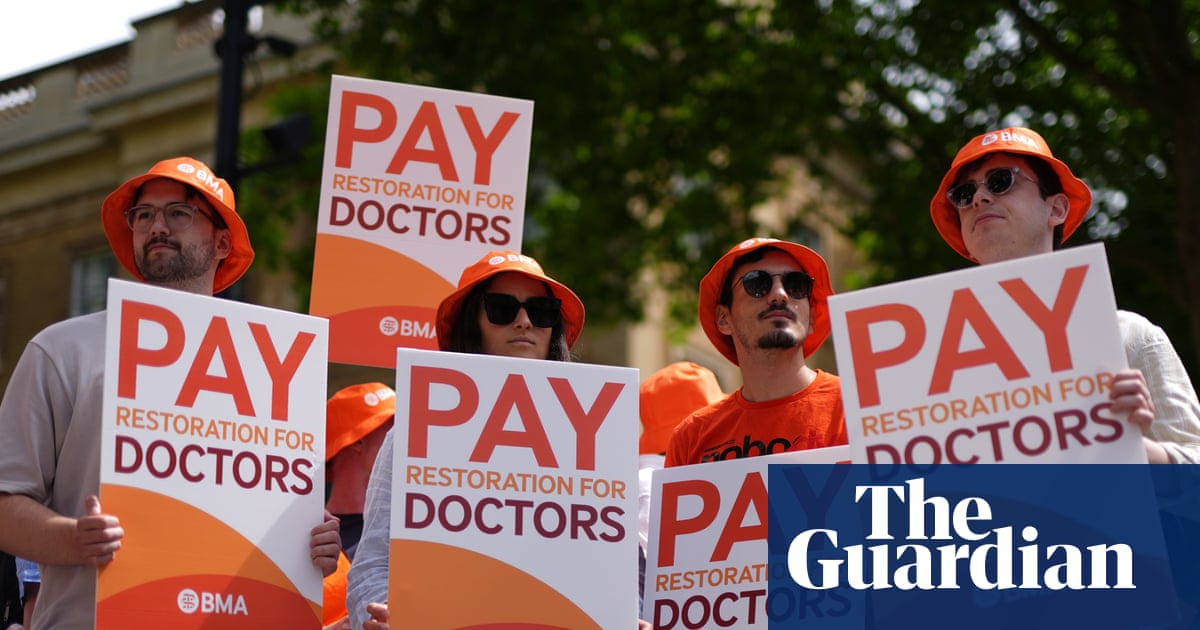Resident Doctors in England Begin Five-Day Strike Over Pay Restoration
Up to 50,000 resident doctors in England are striking for five days, demanding a 29% pay rise to address significant salary erosion since 2008.
Subscribe to unlock this story
We really don't like cutting you off, but you've reached your monthly limit. At just $5/month, subscriptions are how we keep this project going. Start your free 7-day trial today!
Get StartedHave an account? Sign in
Overview
- Prime Minister Sir Keir Starmer has urged resident doctors not to strike, citing potential damaging consequences for the health service.
- The strike, initiated by resident doctors, aims to restore pay after a 20% real-terms cut since 2008, with consultants stepping in to cover shifts.
- The strike has led to over one million appointment cancellations, costing the NHS approximately £1.5 billion.
- Despite the strike, GP surgeries remain open, and urgent care services are still available for the public.
- Public support for the strike has waned, with recent polls showing 49% opposing the action and only 26% in favor.
Report issue

Read both sides in 5 minutes each day
Analysis
Center-leaning sources cover the doctors' strike neutrally by presenting both the doctors' demands and the government's counter-arguments without editorial bias. They attribute claims to specific parties and provide essential context on the NHS and past strikes, allowing readers to form their own conclusions based on balanced information.
Articles (6)
Center (2)
FAQ
Resident doctors are striking to demand a pay rise of approximately 26-29% to restore their salaries to 2008 levels after a real-terms pay cut of about 20% since then, citing significant salary erosion and a lack of substantive government offers.
During the strike, GP surgeries remain open, urgent care services including A&E and NHS 111 are still available, consultants cover resident doctors' shifts, and patients are advised to attend appointments unless notified of cancellations; over one million appointments have been canceled, with rescheduling prioritized.
Prime Minister Sir Keir Starmer has urged doctors not to strike, warning the action will cause real damage to the NHS and patients; public support has declined with polls showing 49% oppose the strike and only 26% support it.
The strike has caused cancellations of over one million appointments and is estimated to have cost the NHS approximately £1.5 billion.
History
- This story does not have any previous versions.




